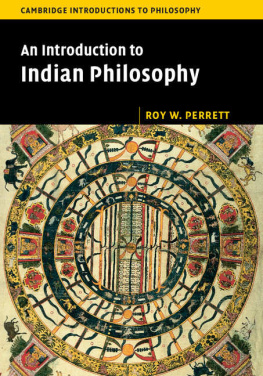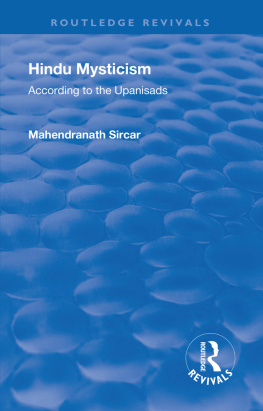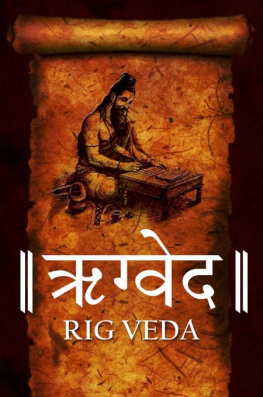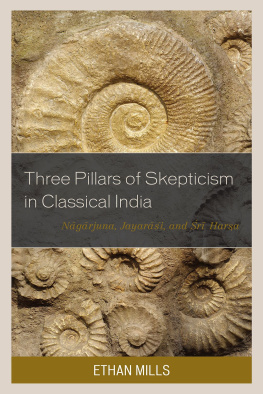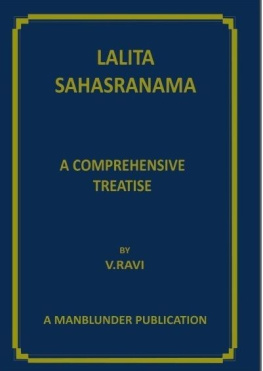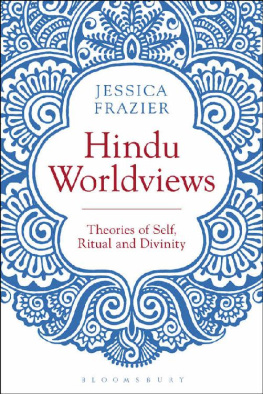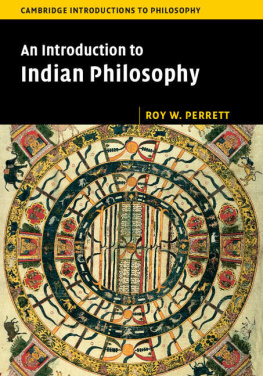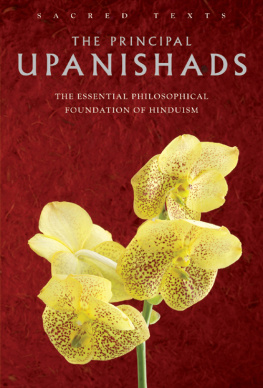The Upaniads
The Upaniads are among the most sacred foundational scriptures in the Hindu religion. Composed from 800 BCE onwards and making up part of the larger Vedic corpus, they offer the reader knowledge lessons on life, death, and immortality. While they are essential to understanding Hinduism and Asian religions more generally, their complexities make them almost impenetrable to anyone but serious scholars of Sanskrit and ancient Indian culture. This book is divided into five parts:
Composition, authorship, and transmission of the Upaniads;
The historical, cultural, and religious background of the Upaniads;
Religion and philosophy in the Upaniads;
The classical Upaniads;
The later Upaniads.
The chapters cover critical issues such as the origins of the Upaniads, authorship, and redaction, as well as exploring the broad religious and philosophical themes within the texts. The guide analyzes each of the Upaniads separately, unpacking their contextual relevance and explaining difficult terms and concepts. The Upaniads: A Complete Guide is a unique and valuable reference source for undergraduate religious studies, history, and philosophy students and researchers who want to learn more about these foundational sacred texts and the religious lessons in the Hindu tradition.
Signe Cohen is Associate Professor of South Asian Religions at the University of Missouri, USA.
The Upaniads
A Complete Guide
Edited by Signe Cohen

First published 2018
by Routledge
2 Park Square, Milton Park, Abingdon, Oxon OX14 4RN
and by Routledge
711 Third Avenue, New York, NY 10017
Routledge is an imprint of the Taylor & Francis Group, an informa business
2018 selection and editorial matter, Signe Cohen; individual chapters, the contributors.
The right of Signe Cohen to be identified as the author of the editorial material, and of the authors for their individual chapters, has been asserted in accordance with sections 77 and 78 of the Copyright, Designs and Patents Act 1988.
All rights reserved. No part of this book may be reprinted or reproduced or utilised in any form or by any electronic, mechanical, or other means, now known or hereafter invented, including photocopying and recording, or in any information storage or retrieval system, without permission in writing from the publishers.
Trademark notice: Product or corporate names may be trademarks or registered trademarks, and are used only for identification and explanation without intent to infringe.
British Library Cataloguing-in-Publication Data
A catalogue record for this book is available from the British Library
Library of Congress Cataloging-in-Publication Data
A catalog record for this book has been requested
ISBN: 978-1-138-79505-1 (hbk)
ISBN: 978-1-315-75870-1 (ebk)
Typeset in Times New Roman
By Out of House Publishing
Yjavalkya
for Valerie Roebuck
A man of simple solutions and somewhat coarse words
Jan Gonda, Vedic Literature p. 353
Of course I wanted cows. Not for their own sake, though,
But for myself. BU 3.1.2; 4.1.1; 2.4.5
Ktyyan shall have them when I go.
Cattle and gold these are human wealth.
(I eat their flesh, too, if its succulent.) B 3.1.2.21
But I prize something else:
Knowledge, and victory in argument.
Brahmins from Kuruketra I defeat,
But not you, dear. With you I dont compete.
Listen, my dear Maitrey. It isnt for my sake BU 2.4.5; 4.5.6
That I am dear
To you, or to Ktyyan. What makes
Me dear is yourself. What if you werent here,
Or if you werent you, but something without
A self? Now is it clear?
Or look at it the other way about:
Before you, even you, are dear to me,
I first must be aware. I first must be.
Now, as a man delighting in his loves embrace BU 4.3.21
(Ktyyan
Would say Indeed! Which one?) knows neither this
Nor that, nor which is he and which is she,
So the self, when it neither wakes nor dreams,
Can only know, and be.
And what the ocean is to all the streams, BU 2.4.11; 4.5.12
The tongue to flavors, and the eye to sights
And yes, the private parts to all delights
Such is the self to all sensations, thoughts and actions.
But when you die BU 2.4.1214; 4.4.12; 4.5.1315
Youll be a unity, with no perceptions.
Dont be so worried. Let me tell you why:
Perception only happens if theres two
Something that isnt I.
Thats my immortal legacy to you. BU 2.4.3; 4.5.4; 4.5.15
Ill see Ktyyan before I go.
Give her her due: she knows what women know. BU 4.5.1
Dermot Killingley
December 30, 2016
Contents
Signe Cohen
Signe Cohen
Signe Cohen
Signe Cohen
Signe Cohen
Dermot Killingley
Dermot Killingley
Signe Cohen
Steven E. Lindquist
Steven E. Lindquist
Jacqueline Suthren Hirst
Dermot Killingley
Dermot Killingley
Jonardon Ganeri
Signe Cohen
Dermot Killingley
Dermot Killingley
Brian Black
Simon Brodbeck
Dermot Killingley
Signe Cohen
Signe Cohen
Dermot Killingley
Dermot Killingley
Signe Cohen
Signe Cohen
The Taittirya UpaniadSigne Cohen
Signe Cohen
Signe Cohen
Signe Cohen
Elizabeth Schiltz
Signe Cohen
Signe Cohen
Signe Cohen
Signe Cohen
Signe Cohen
Signe Cohen
Signe Cohen
Signe Cohen
Signe Cohen
Signe Cohen
Signe Cohen
Brian Black is in the Department of Politics, Philosophy, and Religion at Lancaster University, in the United Kingdom. He has been inspired and fascinated by the Upaniads for more than twenty years. His research interests include Indian religions, comparative philosophy, the use of dialogue in Indian religious and philosophical texts, and Hindu and Buddhist ethics. He is author of the book The Character of the Self in Ancient India: Priests, Kings, and Women in the Early Upaniads (State University of New York 2007); he is co-editor (with Simon Brodbeck) of the book Gender and Narrative in the Mahbhrata (Routledge 2007); and he is co-editor (with Laurie Patton) of the book series Dialogues in South Asian Traditions: Religion, Philosophy, Literature and History (Routledge). He is currently writing a book on dialogue in the Mahbhrata.
Simon Brodbeck is Reader in Religious Studies at Cardiff University, Wales. He is co-editor of Gender and Narrative in the Mahbhrata (Routledge 2007) and the Equinox journal Religions of South Asia, and author of The Mahbhrata Patriline: Gender, Culture, and the Royal Hereditary (Ashgate 2009) and some two dozen articles on aspects of the Mahbhrata and Rmyaa. His work in progress is an accessible English translation of the critically reconstituted Harivaa.
Signe Cohen (PhD University of Pennsylvania) is Associate Professor of South Asian Religions at the University of Missouri. She is the author of Text and Authority in the Older Upanisads (Brill 2008) as well as articles on Sanskrit texts, ancient automata, and postmodernism in the Harry Potter series. Her current book project involves ancient Hindu and Buddhist robot tales. In her work, she explores how these ancient texts about mechanically constructed beings express fundamental religious ideas about the soul and soullessness.


